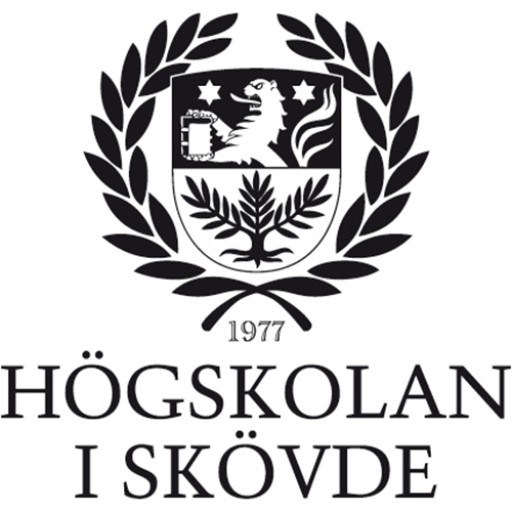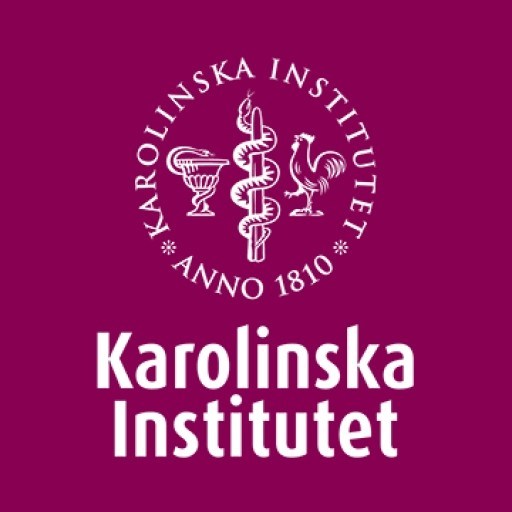Photos of university / #uniofskovde
The Bachelor's Programme in Biomedicine at the University of Skövde provides students with a comprehensive foundation in the fundamental principles of biology, medicine, and health sciences. Designed for those passionate about understanding human health and disease, the program offers an interdisciplinary approach that combines biology, chemistry, physiology, and medical sciences to prepare students for further studies or careers in healthcare, research, and the biomedical industry. Throughout the three-year curriculum, students gain hands-on laboratory experience, develop critical analytical skills, and learn to apply scientific methods to solve real-world biomedical problems. The program emphasizes quality education through active learning, teamwork, and research projects, giving students an insight into current biomedical challenges and innovations. Students will explore areas such as human anatomy, cell biology, molecular biology, pharmacology, and pathology, enabling a deep understanding of the biological basis of health and illness. The program also includes elements of biotechnology, diagnostics, and personalized medicine, aligning with modern developments in biomedical sciences. With access to state-of-the-art laboratories and experienced faculty, students are encouraged to engage in innovative research early in their studies. The educational experience is complemented by opportunities for internships and collaborations with healthcare providers and biotech companies, facilitating professional development and networking. Graduates of the programme are well-equipped for employment within healthcare, pharmaceutical companies, research institutes, or for continued academic studies at master's level. The University of Skövde’s supportive learning environment fosters curiosity, critical thinking, and scientific inquiry, preparing students to contribute meaningfully to the advancement of biomedicine and improve human health worldwide.
The Bachelor’s Degree Programme in Biomedicine at the University of Skövde offers students a comprehensive education in the fields of biology, medicine, and healthcare sciences, preparing them for a diverse range of career opportunities within biomedical research, healthcare, and pharmaceutical industries. The program is designed to provide students with a solid foundation in the core principles of biology, human physiology, anatomy, and molecular medicine, integrating theoretical knowledge with practical skills through laboratory exercises, projects, and internships. Throughout the programme, students will explore subjects such as cell biology, genetics, biochemistry, microbiology, and immunology, gaining insights into how the human body functions and how various diseases develop. Emphasis is also placed on scientific methodology, data analysis, and critical thinking skills necessary for conducting research and solving complex biomedical problems.
The curriculum combines lectures, seminars, laboratory work, and project-based learning, fostering both individual and collaborative work. Students will engage in research projects and may have opportunities to participate in internships with healthcare providers, research institutions, or pharmaceutical companies, providing valuable real-world experience. The programme also emphasizes the importance of ethical considerations in biomedical sciences and encourages students to reflect on current debates and dilemmas within the field.
Graduates of the programme will be well-equipped with the theoretical knowledge, practical skills, and scientific attitude required to pursue further studies or careers in biomedical research, clinical diagnostics, pharmaceutical development, or health technology. The international environment and multidisciplinary approach prepare students to work effectively in global healthcare and research settings. With a focus on innovation and evidence-based practice, the Biomedicine programme at the University of Skövde aims to contribute to the development of tomorrow’s biomedical professionals who can address pressing health challenges and contribute to scientific advancements.
Program requirements: The Bachelor’s Degree Programme in Biomedicine at the University of Skövde requires applicants to have completed upper secondary school (high school) with specific subject prerequisites, typically including advanced coursework in sciences such as Biology and Chemistry. Prospective students must demonstrate proficiency in English, usually through standardized tests like TOEFL or IELTS, with minimum scores set by the university. Prior knowledge or coursework in mathematics and physics may be advantageous but is not always mandatory. The program is open to both Swedish and international applicants who meet the admission criteria. Additionally, applicants may need to submit a motivational letter or personal statement describing their interest in biomedicine and motivation for pursuing the degree. The university also considers relevant work experience or extracurricular activities related to health sciences during the admission process. International students are required to fulfill visa and residence requirements if applicable. No specific prior university coursework is necessary for admission, but the program expects students to have a strong foundation in scientific reasoning, laboratory skills, and critical thinking. The program may also recommend familiarity with basic research methods and ethical considerations in biomedical research. Completion of prerequisite courses in biology and chemistry during secondary education ensures students are prepared for the coursework ahead. The university may conduct assessments or interviews to evaluate the applicant’s motivation and suitability for the program. Overall, admission criteria aim to select motivated and academically capable students with an interest in understanding biological processes and their application in health and medicine.
The Biomedicine program at the University of Skövde offers students a comprehensive educational experience supported by various financing options. Students enrolled in this program have access to Swedish government-funded student aid, known as CSN (Centrala studiestödsnämnden), which provides financial assistance in the form of grants and loans. This aid is available to both Swedish citizens and international students meeting specific criteria, helping to cover tuition fees, living expenses, and other study-related costs. The university itself does not charge tuition fees for students from the European Union (EU), European Economic Area (EEA), and Switzerland, aligning with Swedish policies that promote accessible higher education for EU/EEA/Swiss students. However, non-EU/EEA students are typically required to pay tuition fees, which vary depending on the program and can be substantial. To assist with these expenses, students often seek external scholarships, grants, and sponsorships from governmental and private sources, both within Sweden and internationally.
Additionally, the University of Skövde provides opportunities for part-time work and internships, which not only enhance practical skills but also contribute to students' financial stability during their studies. Some students may qualify for student discounts and subsidies on transportation, accommodation, and other essential services, further easing their financial burden. The university's Career Service Office offers guidance on funding options, freelance opportunities, and entrepreneurial ventures that students can pursue alongside their studies.
For students from non-EU countries, the university provides detailed information about the application process for scholarships and financial aid, encouraging applicants to explore available funding sources early in their planning. It is important for prospective students to carefully review the specific financial requirements and deadlines associated with their nationality and chosen program, as financial planning is a critical aspect of successful university admission and completion. In summary, financing studies at the University of Skövde's Biomedicine program involves a combination of government-funded support, external scholarships, part-time employment, and university resources designed to promote equal access and financial feasibility for a diverse student body.
The Bachelor's Programme in Biomedicine at the University of Skövde offers students a comprehensive education in the fields of biology, chemistry, medicine, and healthcare, preparing them for a wide range of careers in the biomedical sector. The program is designed to provide students with a solid foundation in scientific theory alongside practical skills crucial for research, diagnostics, and healthcare applications. Throughout their studies, students engage in laboratory work, theoretical courses, and project-based learning to develop critical thinking and problem-solving abilities necessary for addressing complex biomedical challenges.
The curriculum covers core areas such as human biology, cell and molecular biology, physiology, anatomy, biochemistry, and medical genetics, integrating these disciplines to give students a holistic understanding of human health and disease mechanisms. In addition, the program emphasizes the importance of ethics and sustainable development in biomedical sciences, fostering a responsible approach to research and innovation.
Students also have opportunities to participate in internships and collaborative projects with industry partners, hospitals, and research institutions, which enhance their practical experience and employability. The program prepares graduates for further studies at master’s level, as well as for professional roles in research laboratories, pharmaceutical companies, healthcare organizations, and biotech firms.
The teaching at the University of Skövde combines lectures, seminars, laboratory exercises, and project work, supported by modern equipment and facilities. The program encourages international collaboration and promotes competence in scientific communication and teamwork. Upon completion of the degree, graduates will have developed a deep understanding of biomedical sciences, along with the skills necessary to contribute to innovations in healthcare and medical research. The program aims to address global health challenges by equipping graduates with knowledge and skills that are highly relevant in today’s medical and scientific fields.









